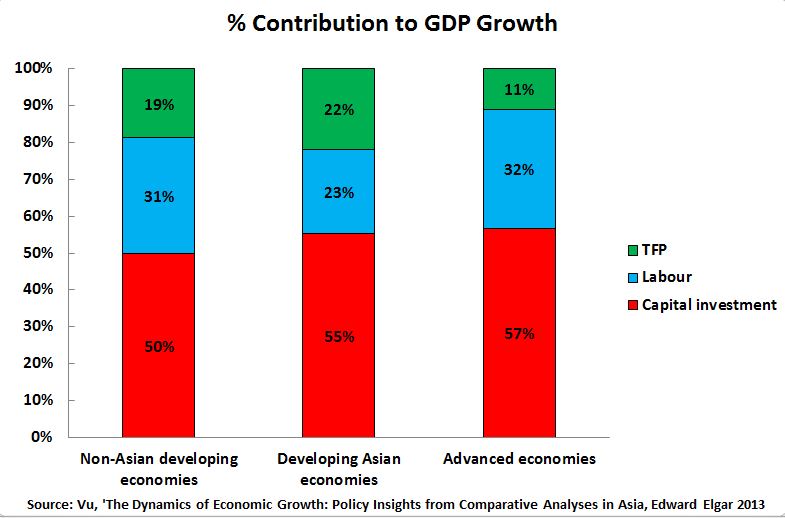China can maintain its economic growth
- By John Ross
 0 Comment(s)
0 Comment(s) Print
Print E-mail China.org.cn, August 13, 2014
E-mail China.org.cn, August 13, 2014
For those at the bottom of the income ladder, economic growth is particularly crucial. The Oxford Poverty and Human Development Initiative recently studied every country in the world's correlation between GDP per person and the Multidimensional Poverty Index (MPI), which considers ten indicators including nutrition, child mortality, and years of schooling. An extraordinarily close correlation was found – as The Economist magazine noted: 'Economic growth may thus not only be the best way to overcome extreme poverty, but also to reduce terrible non-economic social ailments as well.'
Since the attainment of a high standard of living – which requires high consumption, good environment, quality health care, and poverty elimination – is certainly at the top of the priority list if China is to maintain rapid overall progress, sustained high economic growth is indispensable. Fortunately, examination of economic fundamentals shows that, provided no major policy mistakes are made, China will continue to outperform all other major economies for a prolonged period.
Any economy's growth is necessarily determined by two simple ratios. The first is the percentage of the economy that is invested. Modern economic research shows that 57% of growth in an advanced economy is due to capital investment, 32% to increases in labour, and only 11% due to productivity increases (technically known as Total Factor Productivity – TFP).
Developing economies, such as China, at present have the advantage that they can apply technologies from more advanced economies without having to pay the research costs of developing them – a benefit known as 'catch-up.' In developing Asian economies, for example, 22% of growth is due to productivity increases compared to only 11% in developed economies, as the chart below shows.
But the advantage of being able to borrow technology without paying development costs disappears as an economy becomes more advanced. Therefore, the role played by productivity growth falls as an economy moves to higher income levels, while the role played by capital investment increases, as is also shown in the chart above. The percentage of growth accounted for by productivity declines from 19-22% in developing economies to 11% in advanced ones.
By 2020 China will be on the verge of becoming a 'high income' economy according to World Bank criteria. As China is no longer exempt from the economic growth rules that apply to any other country, its growth strategy must therefore assume that as it becomes more developed, its growth will become more and more dependent on capital investment and less dependent on productivity increases.






